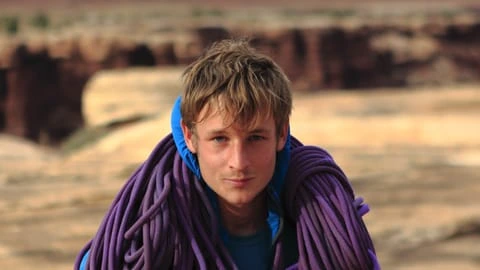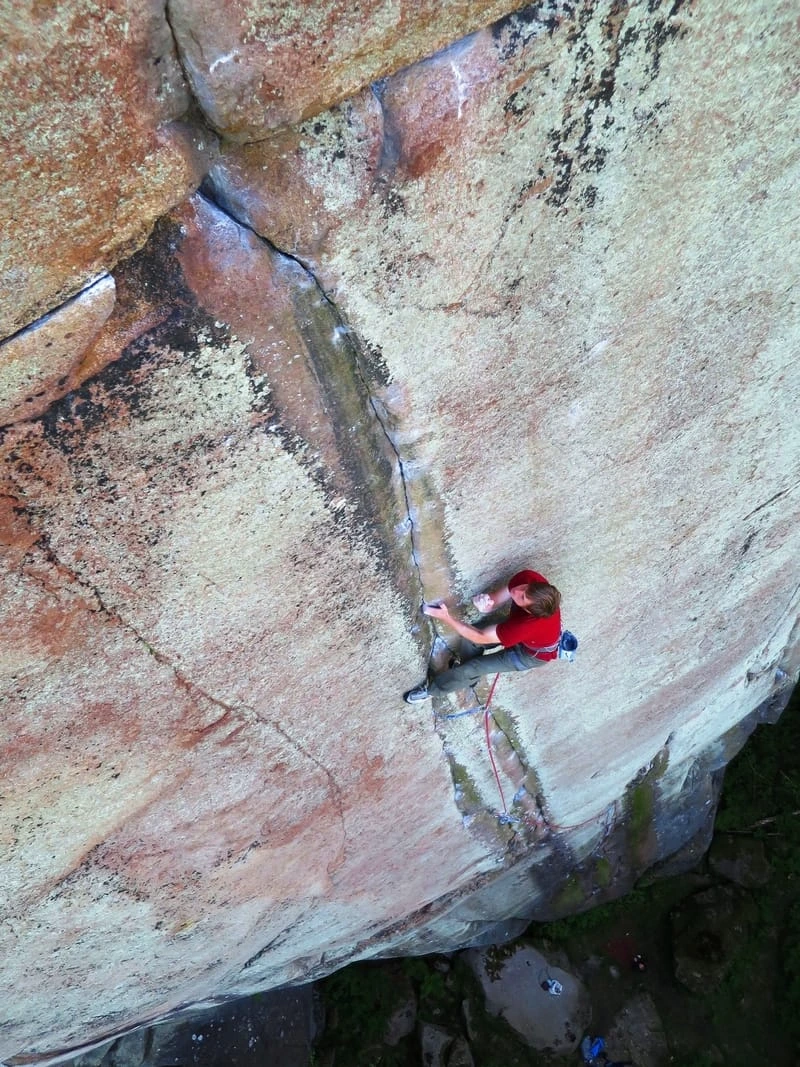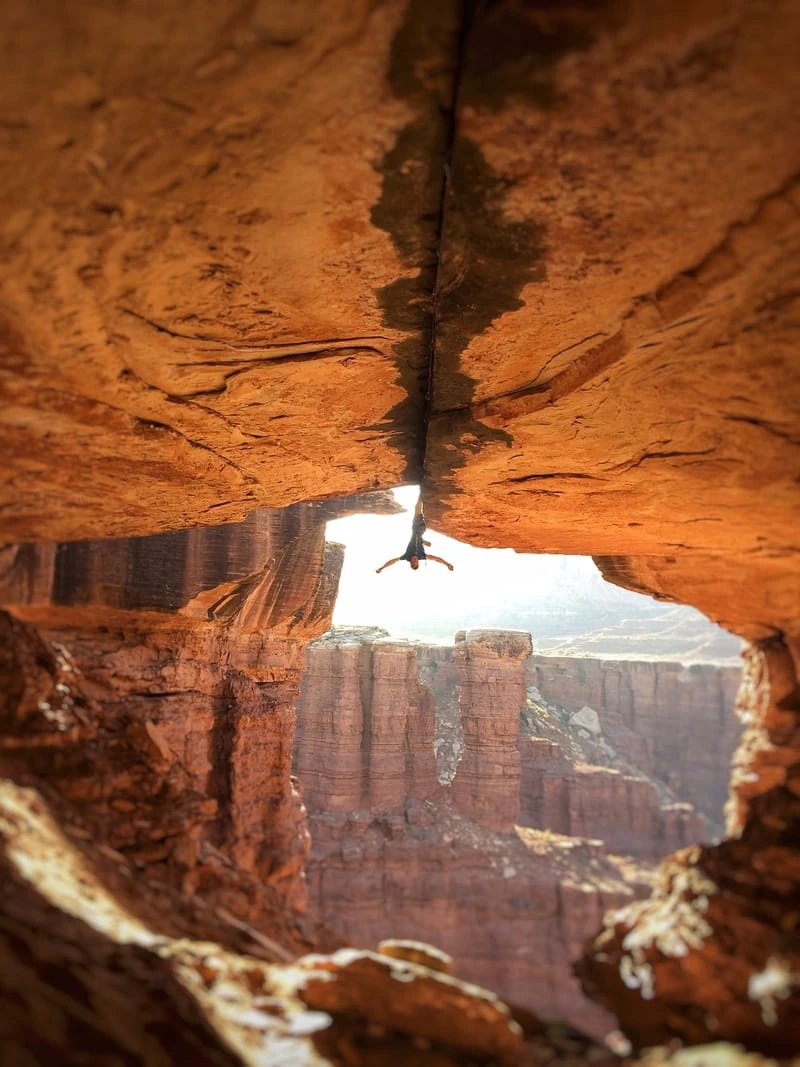Sport - Interview

Interview with Pete Whittaker, Professional Climber, Speaker and Writer
Sport - Interview
by Meryem Aksoy
The records you have broken can be improved by others in the future, and your success may be lost in the dusty pages of history, but the firsts you have achieved will be remembered in the future. Pete Whittaker, who has been climbing since the age of 7, also loves to make firsts. In 2011, he made the First Ascent of Century Crack after two years of hard work. His passion for climbing lead him to Yosemite and in 2016, he became the first person to solo-free climb El Capitan in a day by using a technique known as rope soloing. Recognized for his achievements in Big Wall and crack climbing, Pete Whittaker is also a speaker and writer. His first book 'Crack Climbing' will be on the shelves this Autumn. I had the opportunity to interview Pete Whittaker, and I talked with him about the highlights of his career and the importance of individual sponsorship in rock climbing.
Pete, you have grown up in the Peak District. How did you discover the climbing passion that takes you to the rocks? Who or what encouraged you?
My family is into the outdoors and adventures, so it was my parents that introduced me. From the age of about 6, they took my sister and me on mini adventures, either hill walking, scrambling or rock climbing.
You're not just a professional climber, and you're also a speaker and writer. Could you tell us about yourself? Who is Pete Whittaker?
I also do work as a speaker, mainly just to other outdoor enthusiasts. I've spoken at numerous different events from local climbing clubs, to things like the London Outdoor Show and Banff Mountain Film Festival. I have recently just joined the list of speakers for 'Speakers from the Edge' so I'm excited about where this can lead. I like to tell funny stories but with a serious, hard-working underlying message. The way I present kind of sums up my personality; having a laugh and not taking myself too seriously, but hard working underneath it all.
I also work as a writer, doing work for websites and magazines. My first book 'Crack Climbing' is due this Autumn. The book is essentially a bible of crack climbing technique. There is currently no one place where people can get this information, its all scattered in articles and random places on the internet. This book will be the go-to resource. I've been working on it for 3 years, so I hope people can learn from it.
You have started your career as a trad climber. Could you tell us about your climbing style? What climbing style do you prefer most?
Yes, I've always done Trad climbing right from the beginning. Its how I was introduced to climbing through my parents. We used to trad climb. I'd be following mum and her friends up routes in the Peak District. I think my climbing is just an extension of these early days, it has involved from there.
These days the styles that excite me most are crack climbing and Big Wall climbing. Crack climbs offer great trad routes and very technical climbing (I like technical climbing), which is why I enjoy this style so much. I would also say the bigger the line the more excited I get, which is why I like Big Walls. Over the past few years, I've soloed a number of big walls, quickly, and this style seems to fit me really well. Lots of climbing in a short space of time, by yourself, everything and all decisions are down to you. I like that.
What was your biggest achievement? What is next?
2 spring to mind. Probably making the First Ascent of Century Crack in 2011. I was 20, I'd trained for two years (so since I was 18) with my climbing partner for this specific project. I kind of put my life on hold to climb that route. Its one of the hardest I've worked and most dedicated I've been to climb something. It was quite big at the time because we didn't just push the standard of off-width climbing by 1 grade. We pushed the current standard by 4 grades, and I came from a country which was perceived to be crap at wide climbing.
The second is my solo-free ascent of El Cap. Essentially I became the first person to Free climb El Cap alone in under 24hrs. I used a technique known as rope soloing to do this. This was quite big for me as I went from never having rope soloed in my life, to 8 months later completing this 'first'. I proved to myself I had some sort of ability for big wall soloing.

Pete Whittaker
What are your favorite and dream routes?
My favourite routes are always the ones I'm currently working on, so it changes all the time. I get psyched for current projects and that's what motivates me.
What does climbing means for you?
Climbing is a big part of my life now. I make my living from it. However, I've always said, if it weren't climbing, it would be something else. And I'd be doing that 'something else' to the best of my ability. Climbing is in my life, but it isn't necessarily my life.
We are facing financial problems at every moment of our lives. What are the basic financial problems that climbers have been living during their competition and rock climbing career?
Climbing isn't a BIG sport, however, it is getting more popular. I'm just in that bracket where climbers are actually starting to see proper wages and contracts for what they do. However usually these things don't just come to you, you have to put yourself out there to get them, and you have to work hard to keep them. To become a full professional climber isn't easy; you have to be business minded as well as performing well.
What is the best way to attract sponsors' attention?
Build a castle of bricks (and mortar) and not a bouncy castle of air. The bricks represent your climbing performance and the mortar represents a business mind, to glue climbing performance to a brands approach. Both are needed to attract sponsors, you can't have a castle full of air, and likewise, you can't have a castle made of bricks, but with no mortar, you'll bounce and stand for a certain amount of time, but fall eventually. Neither are a long term solution to working with sponsors.
3 of my sponsors I've been with for 16, 11 and 9 years, so the bricks and mortar approach seems to be working for me at the moment. I'll re-evaluate if my castle needs repointing
What contributions do sponsor brands provide climbers?
I've found over the years it's usually done on 3 levels
1 - Kit, getting a certain amount of kit to wear, given directly to you from the brand.
2 - Trip funding, being able to apply for trip funding and getting your expenses paid for you, for a certain project you have in mind or the brand has in mind.
3 - Wage/retainer, Money directly to help with everyday living, You can train, travel, do events and work with your brand much more closely. It's hard to get to this point fully, and there aren't really that many climbers who fully live off money directly from sponsors, most interlink it with other bits of work.
What do sponsors expect and demand from climbers?
It depends on your contracts. Again they come on different levels. Some want a certain amount of athlete work days, some want a certain amount of social media, some want a certain amount of video and photo content, some want you to do talks. It really depends on where you think your strengths lie in the 'business side' of climbing and then being able to negotiate this with the brands that you work with.

Pete Whittaker
In your career, when did you first attract sponsors' attention? How did you do this?
When I was 12, I started on a very basic deal of getting kit sponsorship from 5.10. This came about through the UK distributor at the time. The owner of that company used to climb at the wall I used to train at. I'm still with 5.10 now.
When I was 16 I heard that Patagonia was looking for upcoming UK rock climbers to sponsor, so I just wrote to them with a CV and they accepted me with a kit sponsorship. I'm still with Patagonia now as well.
Could you tell us about your sponsors and partners? What are the brands that you collaborate with?
Patagonia - I've been with them for 11 years. I like Patagonia because it really feels like a family vibe. All the other ambassadors and workers are great and genuine people. A great brand to work with.
Five Ten - my longest standing sponsor of 16 years
Wild Country - worked with them for 9 years
Sterling Rope - Worked with them for 8 years
Beta Climbing (dream Tape) - A local distributing company in Sheffield who have always helped me with my large amounts of tape consumption. 8 years
Hard Bar - A new company that has set up making natural energy bars. Great for my 24 hours challenges. I like Mark, the owner of the company, he's really helpful, and generous for a small company. I feel like he's got a very honest approach. I hope my consumption of bars is good for his company, haha. 1 year
Alpkit - Just started working with these guys since the last few months. I've known the guys here for a long time and it's been amazing to see how the company has grown and started doing so well. I'm pleased to be working with these guys as again they just seem really helpful and honest.
How many different platforms do you represent your sponsors throughout the year?
If you mean Social Media platforms, the main ones I use day to day are Instagram and Facebook. But there are so many different ways I represent my sponsors. Photos, short internet films, festival films, events, talks, media, interviews, radio, podcasts, masterclasses, blogs, vlogs, articles, climbing news, newspapers etc etc. loads of different things all the time.
What are you paying attention to when a new brand contacted you about sponsorship?
What I expect from them and what they expect back from me, all in relation to how big your profile is. It all has to match up. If your profile is big and you are getting a few free things from a company, they can't really expect much back. However, if your profile is small and they are giving you money, they can expect much more back from you. Then there is everything in between these two extremes.
What are the main factors that affect the beginning and continuity of successful sponsorship?
Being genuine, honest and staying up to date.
Do you have any advice for climbers who want to pursue a professional career?
My advice is above. Build a castle of bricks and mortar. And don't think it's easy to get there and don't think it's easy to stay there, and remember it won't last forever so make the most of it whilst you can.
What do you think about social media? How did it affect the popularity of rock climbing?
I never really liked the whole social media scene initially. However I have grown to like it, I enjoy sharing my stories, passion, and journey as I've noticed that other people do actually get something from me sharing. And in all honesty its a really easy way to get things out there for free (events, news, book details, masterclasses, photos, videos, etc.). There are always positives and negatives, but for the moment I'm rolling with the positives of it.
How can our readers follow you?
Instagram @petewhittaker01 (I keep day to day things updated on this)
Facebook page @petewhittaker01 (I post longer stories and share other links on this)
@wide_boyz on both FB and Instagram. These accounts I use jointly with my climbing partner for all things crack-related, and also to help promote our new Wide Boyz business.
What is next for you?
Climbing - I have 5 big unfinished projects. hopefully, I can get 2 done this year. I'm not taking on any more big projects until I've ticked some of these off.
Book - I'm really excited about my book coming out this autumn. I'd really like to do some events with this and push it as much as possible as I've spent a long time and put a huge amount of work into it. I'm pleased with how it is shaping up and I hope my attention to detail will be a progression on current climbing technique books in general.
Thank you Pete for your time.
For more information, please click here to visit the website of Pete Whittaker
This interview was conducted in a Question-and-Answer format. The answers were checked for grammar and punctuation and published without any additional editing. Monday, April 15, 2019. All photos are the property of their respective owners.